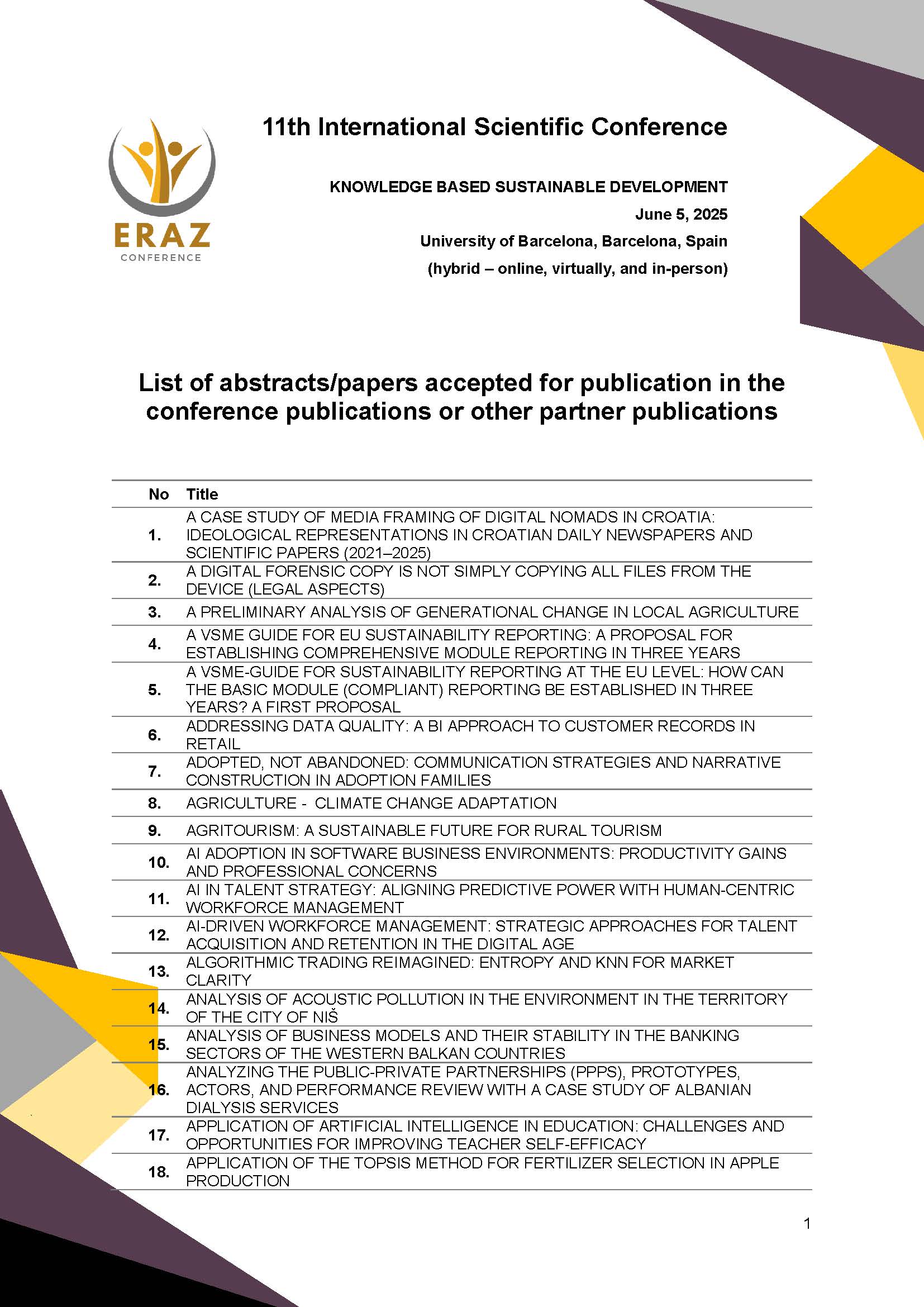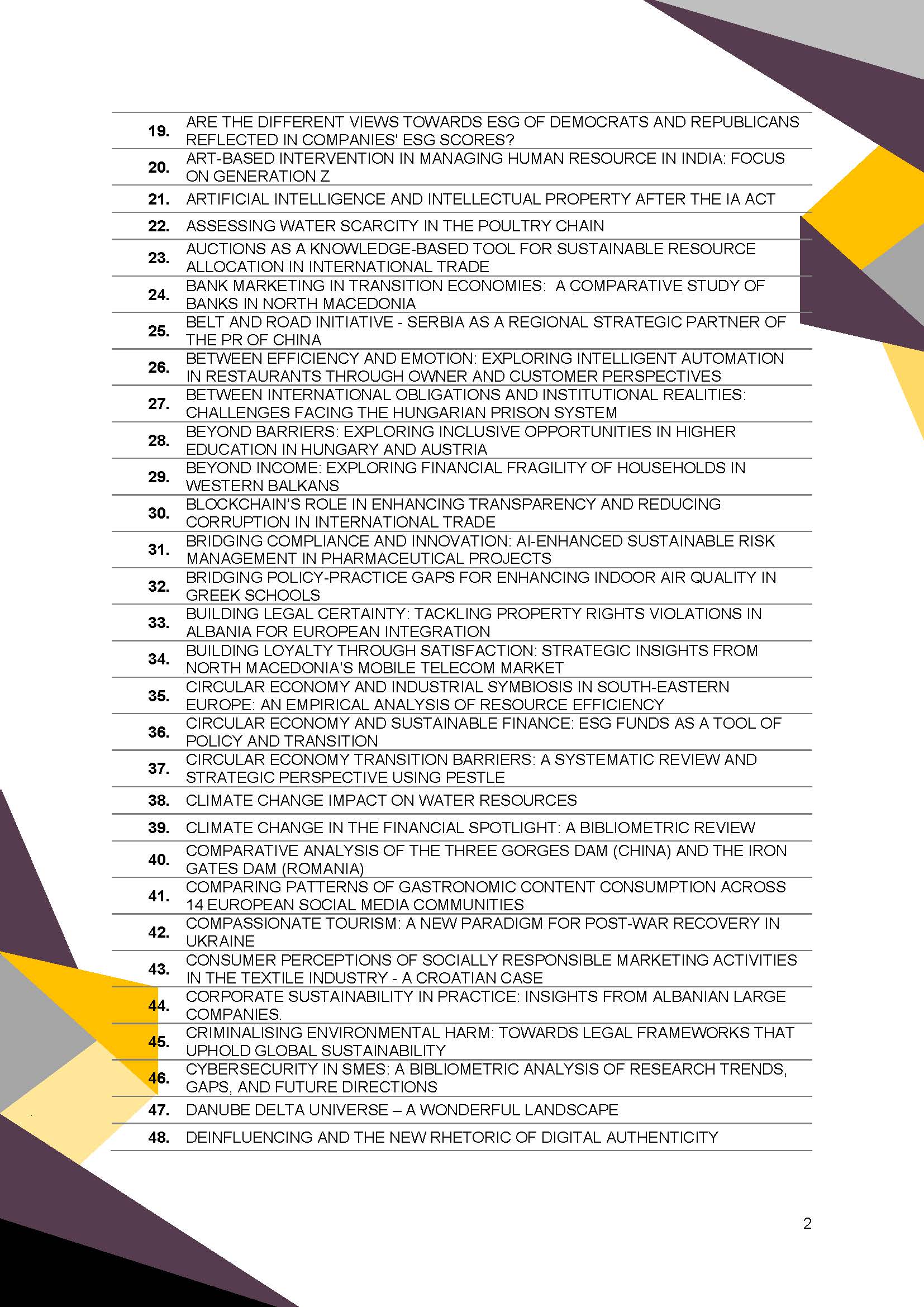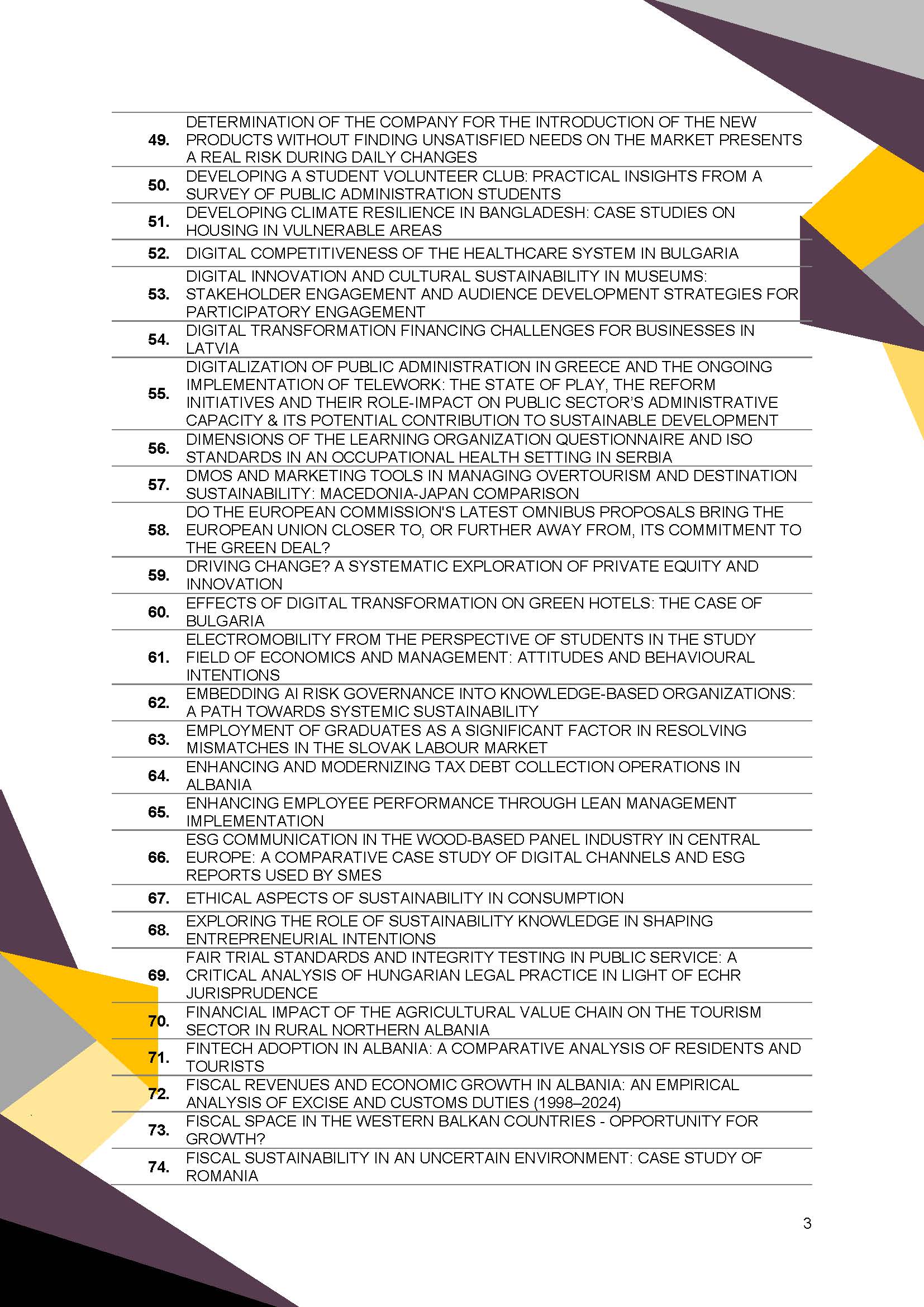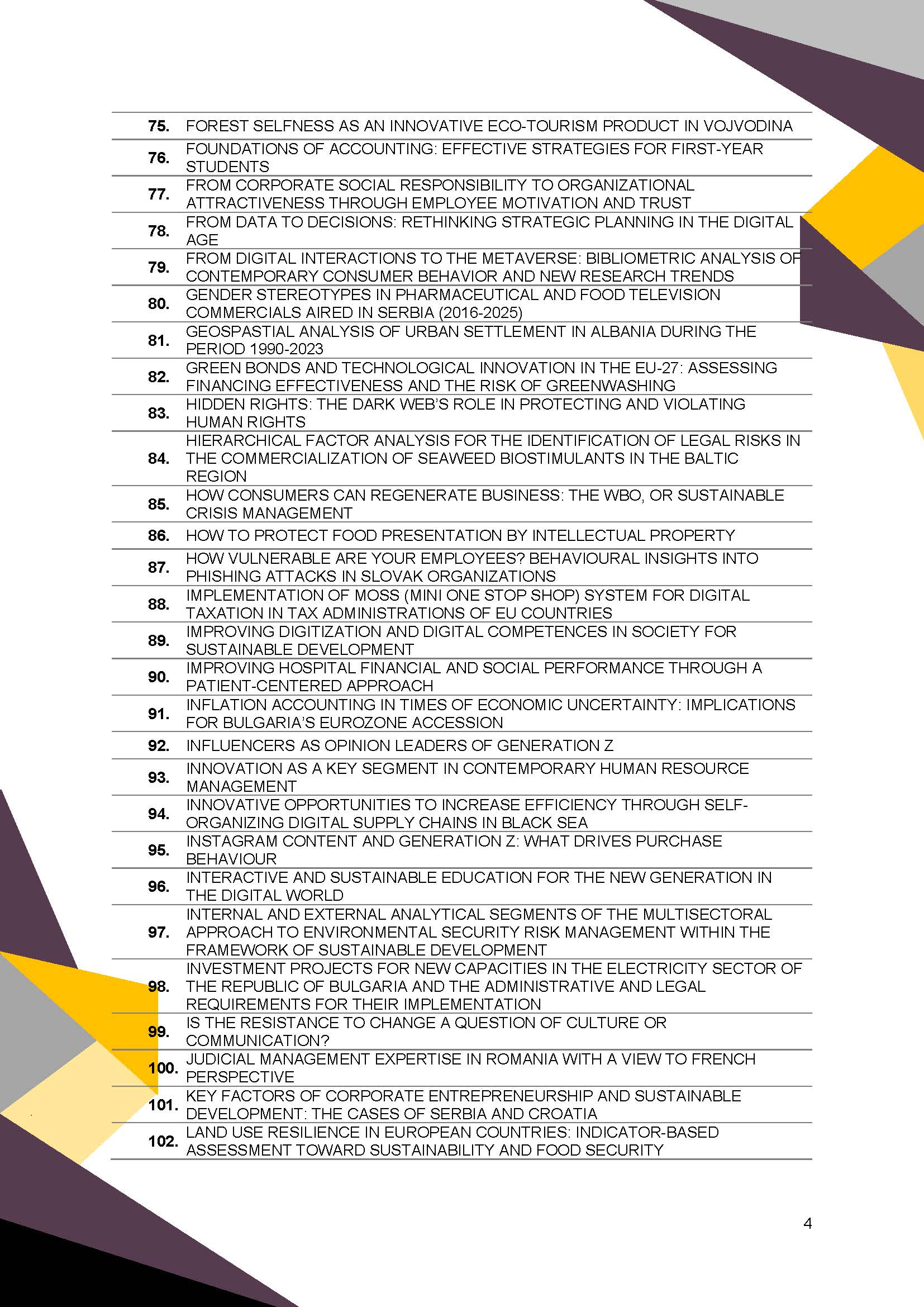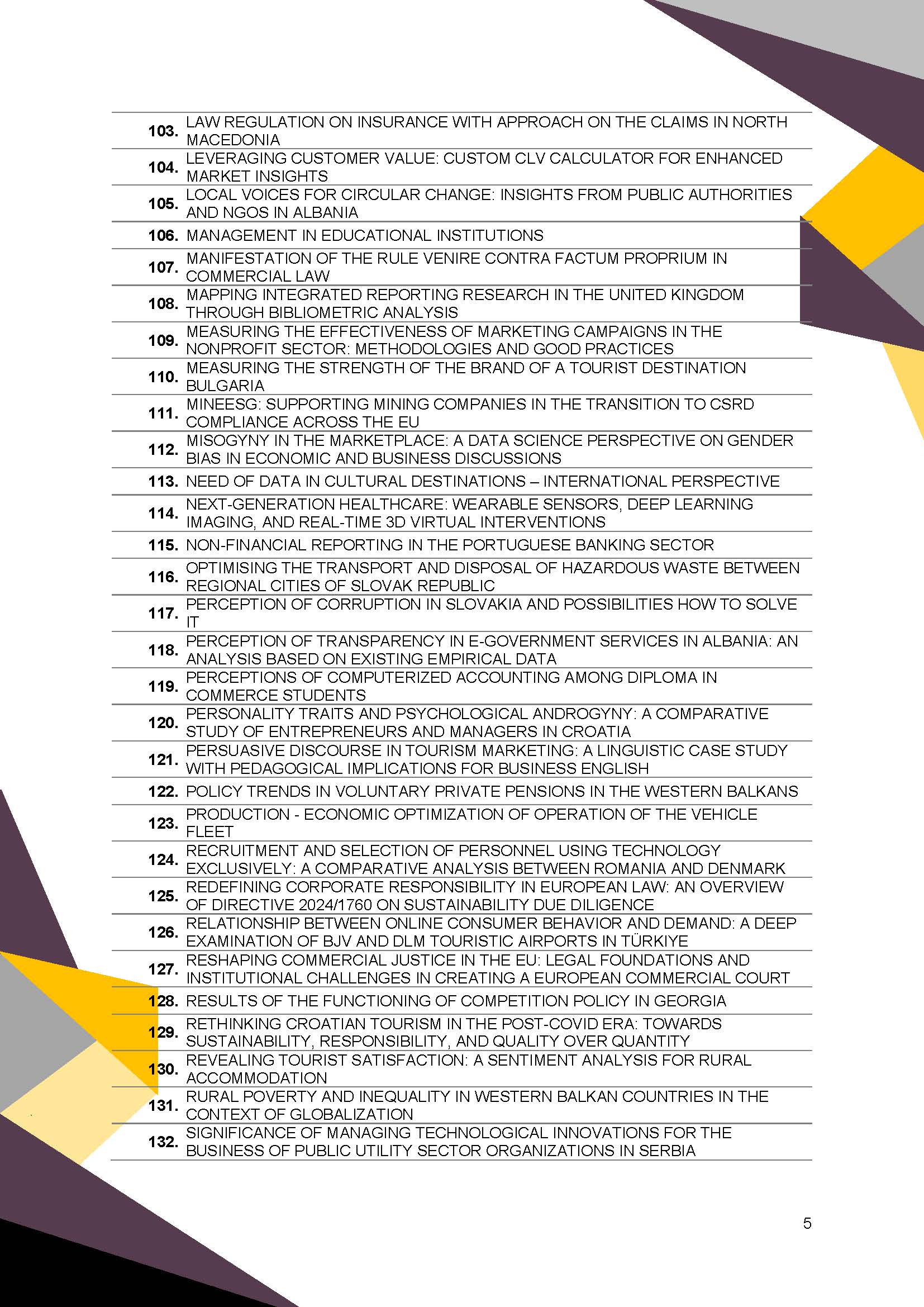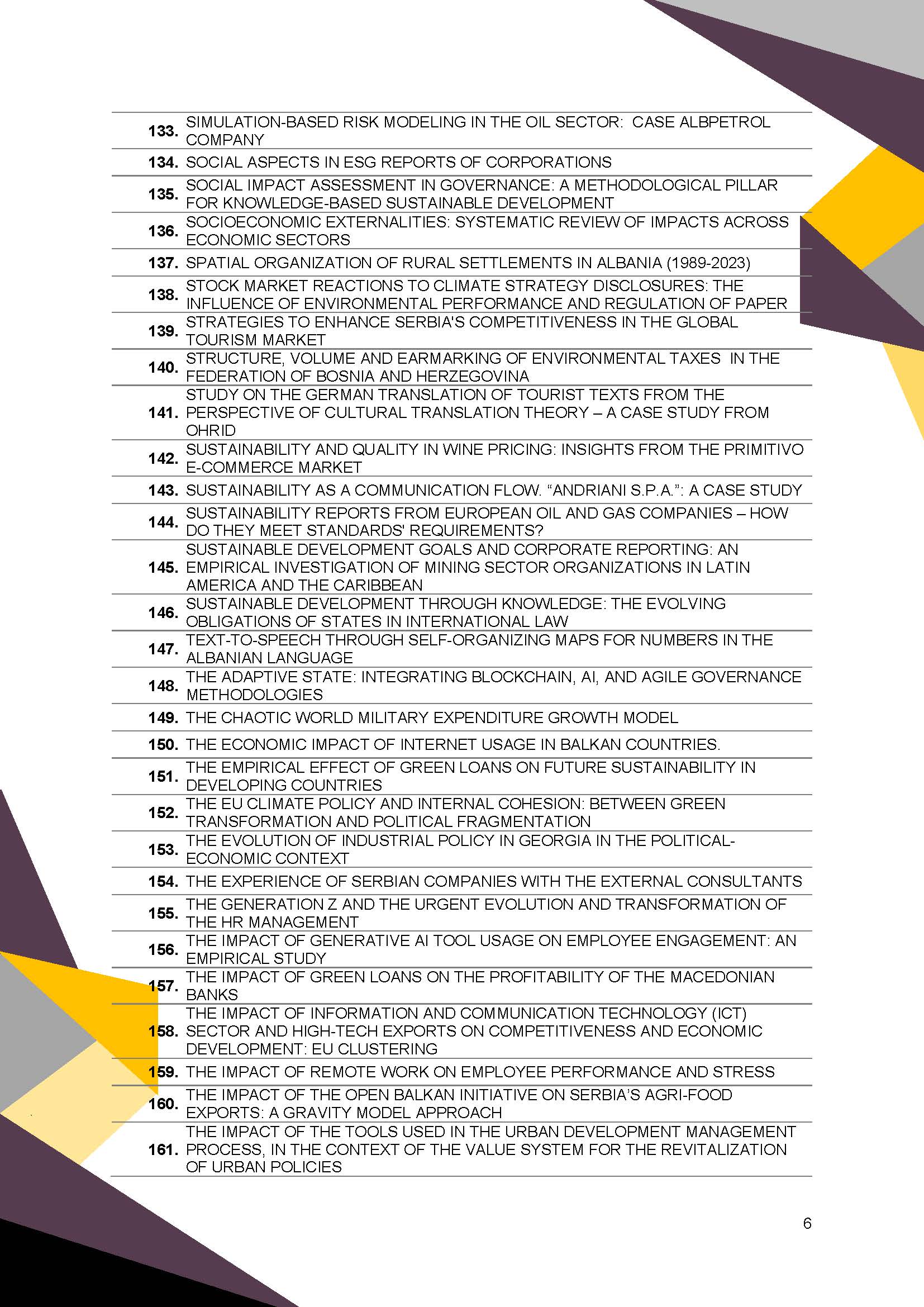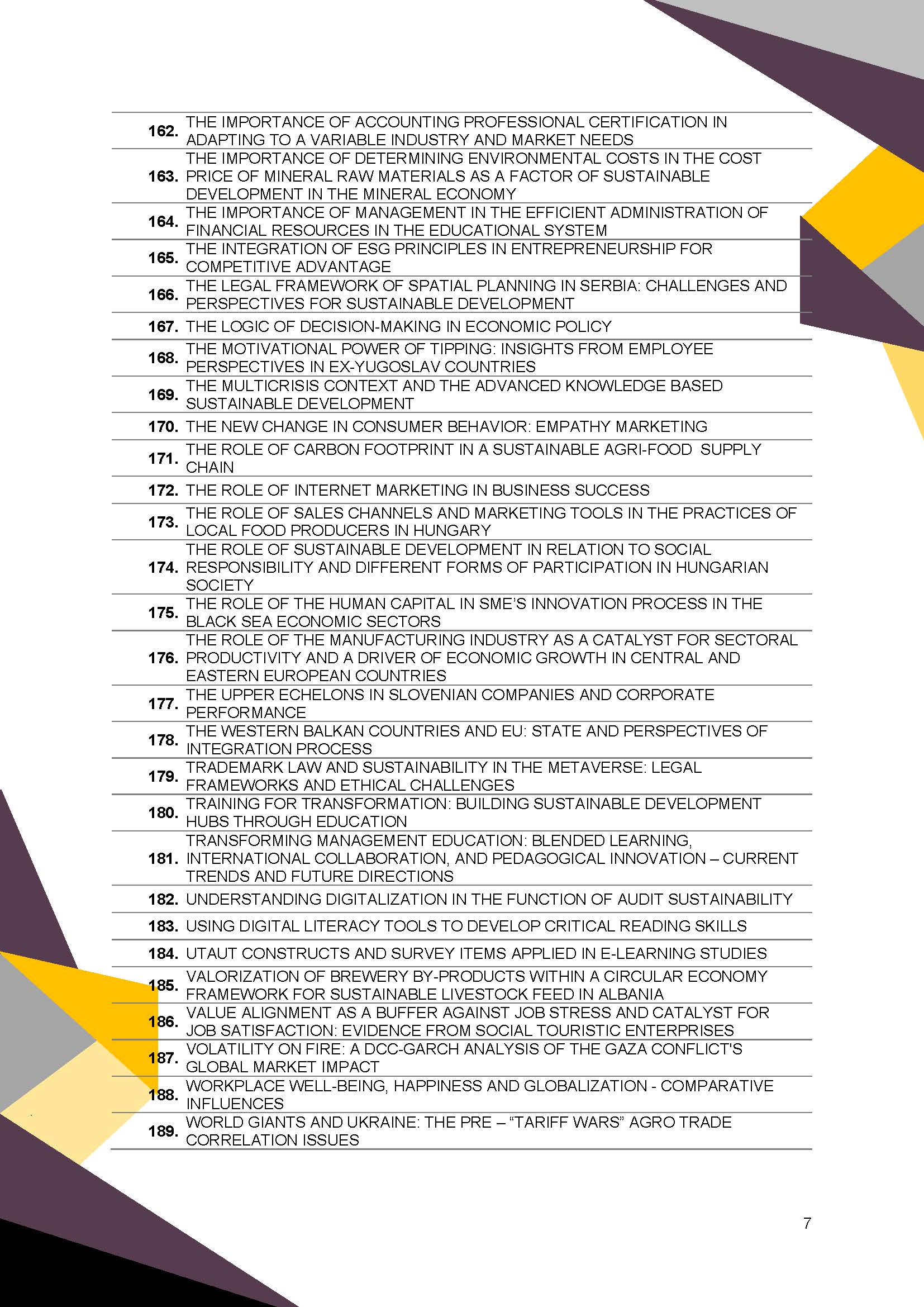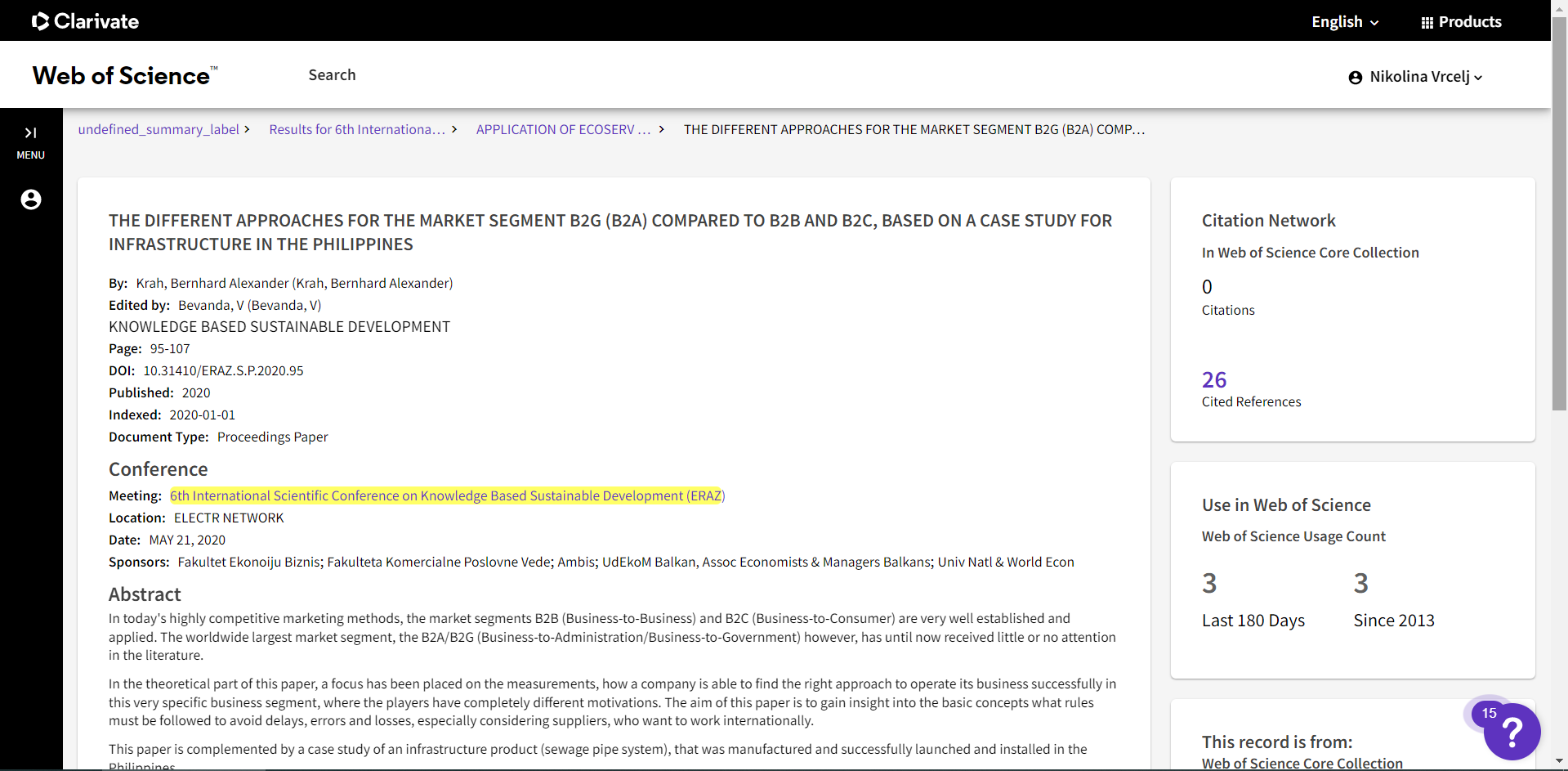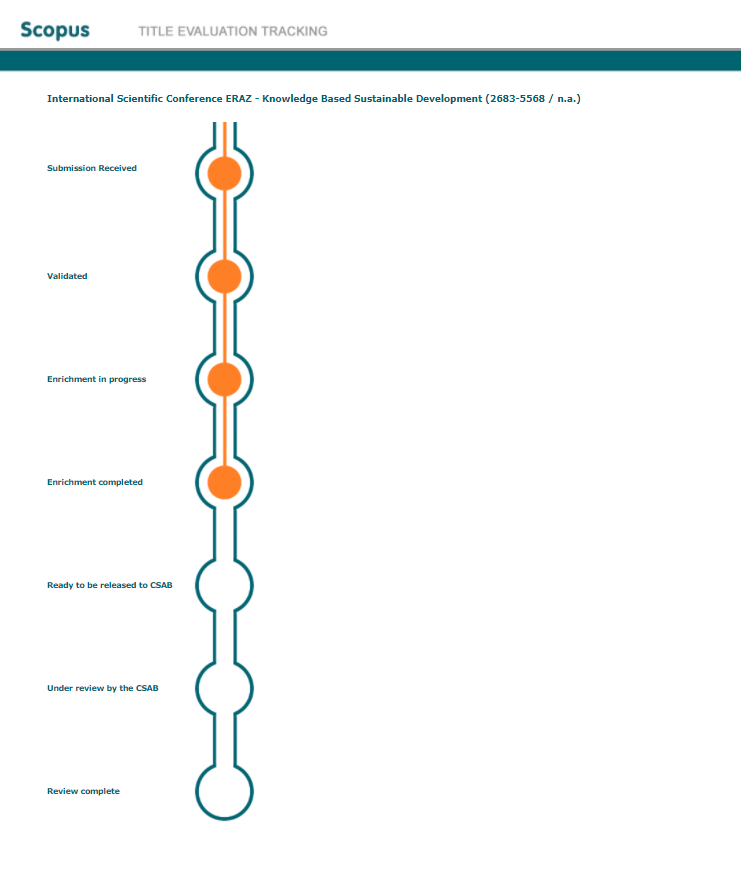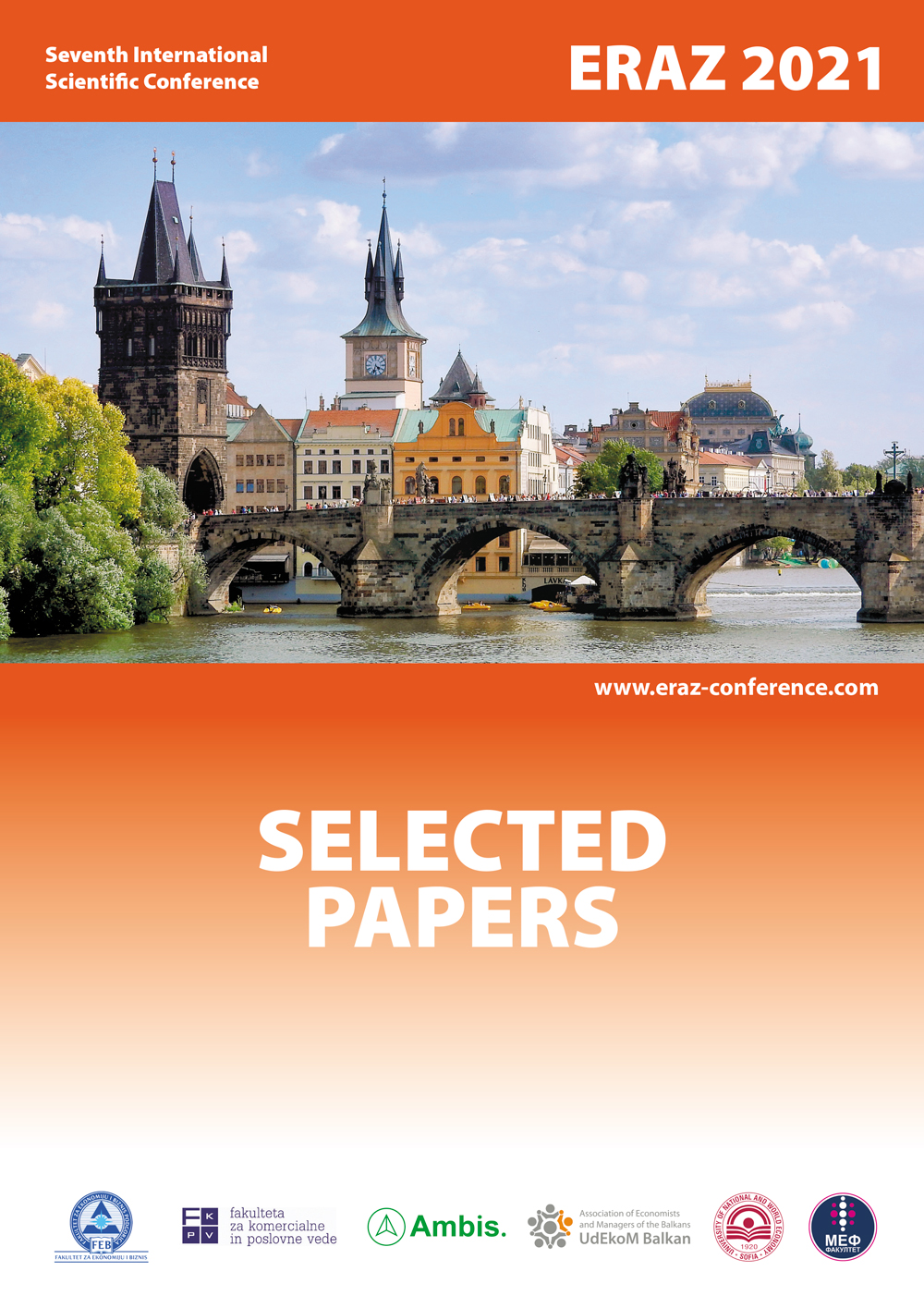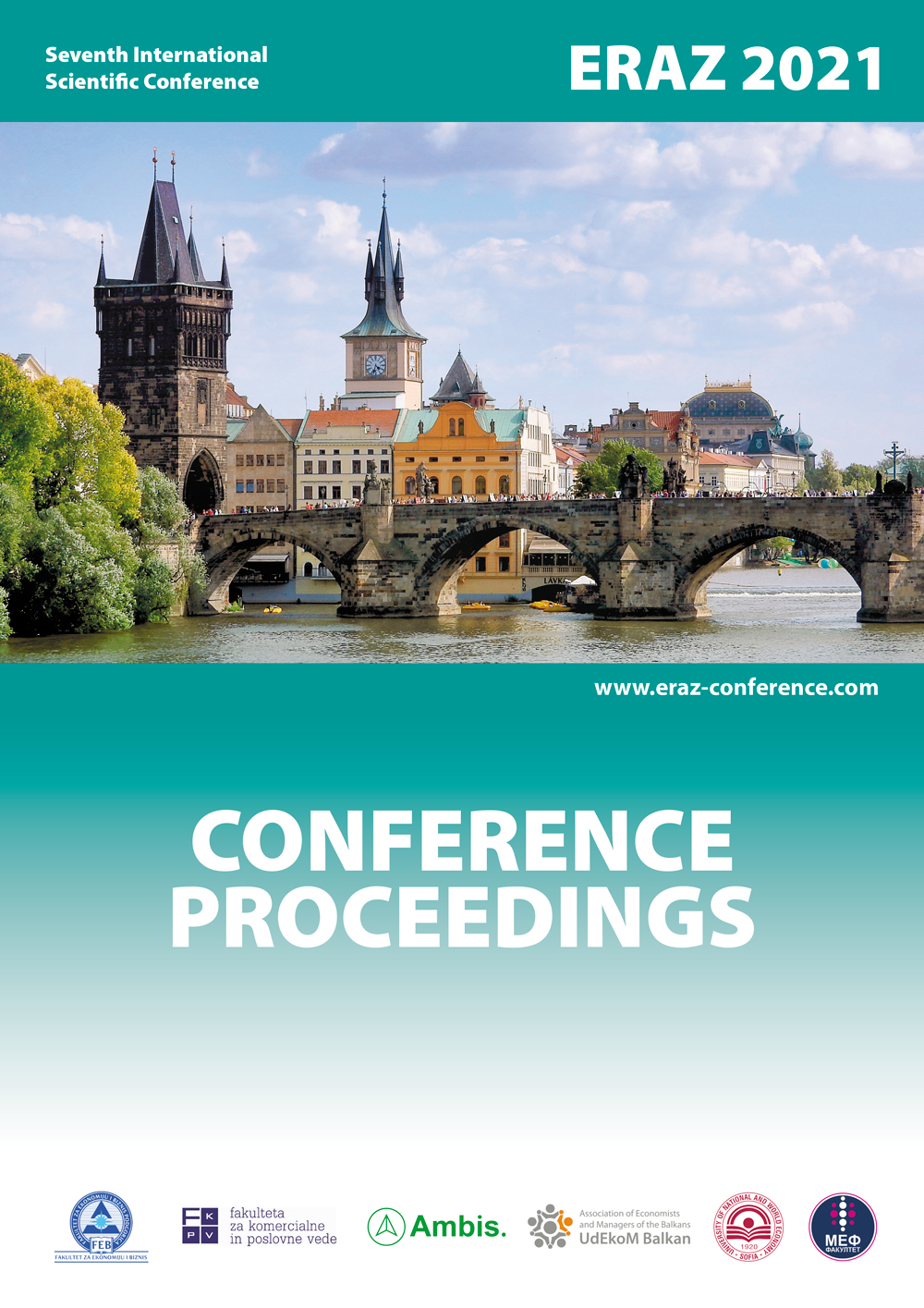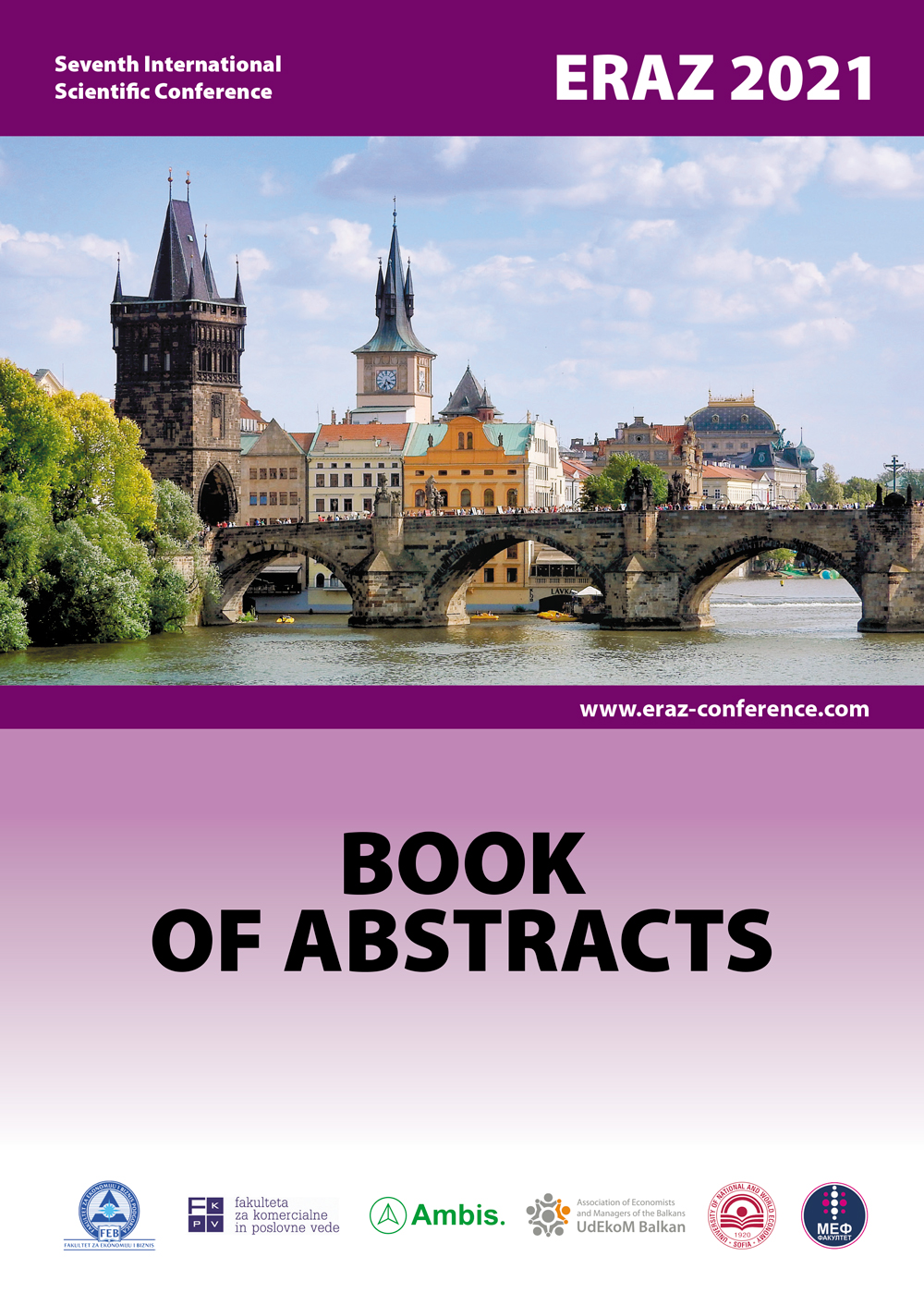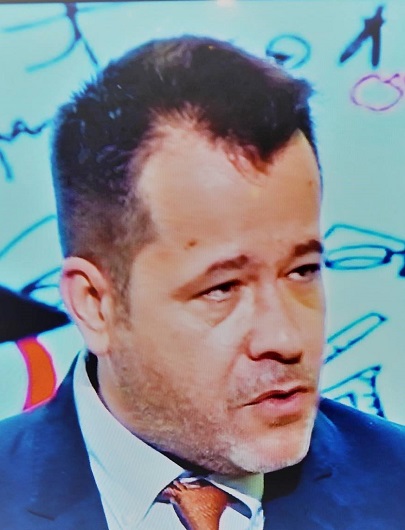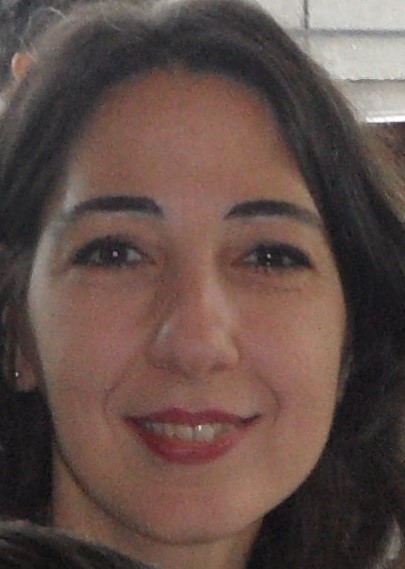12th International Scientific Conference
KNOWLEDGE BASED SUSTAINABLE DEVELOPMENTERAZ 2026
June 10-12, 2026
Florence, Italy
(in-person, online, virtual = hybrid)
The first three ERAZ conferences were organized in Belgrade, the fourth in Sofia, and the fifth in Budapest; the sixth, seventh, and eighth were online/virtually (due to the COVID-19 pandemic), the ninth ERAZ scientific conference was held in Prague – Czech Republic (in person and online/virtually via Zoom). The 10th ERAZ conference was held in a hybrid form in Lisbon (Portugal) on June 6, 2024, at the University Institute of Lisbon (ISCTE).
This year, the ERAZ 2025 conference was held at the University of Barcelona (Barcelona, Spain) in the historical building next to Placa de Catalunya.
ERAZ 2025 Full Paper Submission Deadline
Day(s)
:
Hour(s)
:
Minute(s)
:
Second(s)
ERAZ 2025 Conference Day
Preliminary Conference Proceedings Content of the ERAZ 2025 Conference
More than 340 authors will give their contribution to the conference, with nearly 200 abstracts/papers from 36 different countries:
- Albania
- Australia
- Austria
- Bangladesh
- Bosnia and Herzegovina
- Bulgaria
- China
- Croatia
- Czech Republic
- France
- Georgia
- Germany
- Greece
- Hungary
- India
- Italy
- Japan
- Latvia
- Moldova
- Montenegro
- Morocco
- North Macedonia
- Pakistan
- Poland
- Portugal
- Romania
- Serbia
- Slovak Republic
- Slovenia
- Spain
- Switzerland
- Türkiye
- United Arab Emirates (UAE)
- United Kingdom (UK)
- Ukraine
- United States of America (USA)
Conference Objective
The ERAZ scientific conference objective is to bring together the academic community (experts, scientists, engineers, researchers, students and others) and publication of their scientific papers for the purpose of popularization of science and their personal and collective affirmation. The unique program combines presentation of the latest scientific developments in these areas, interactive discussion and other forms of interpersonal exchange of experiences.
ERAZ Conference Partner Institutions
The Faculty of Logistics of the University of Maribor has its headquarters in Celje, on Mariborska cesta 7 (Slovenia). The faculty, which is the only specialized faculty for education and research in the field of logistics in Slovenia, currently has 432 students at all Bologna levels. The faculty carry out internationally accredited study programs: two on the 1st study level: higher education professional program economic and technical logistics and university program logistics systems. Further one can study master’s on the 2nd and Ph.D. on the 3rd level of the logistics systems program.
All study programs are well-established, aimed at acquiring new knowledge and competencies. That is why the curriculums will never be final, but will always adapt. The development of logistics is too fast to lecture on obsolete technologies. Therefore, through research, the faculty contribute to the development of the world treasury of knowledge, recognize and listen to the needs of the business environment, and thus adapt study content.

The University of National and World Economy /UNWE/ is the largest and the eldest higher economic school in Bulgaria and Southeastern Europe. It has a history of 100 years.
The University originates from the Free University of Political and Economic Sciences established by Order No.2155 of July, 5th, 1920 of the Minister of National Enlightment. In 1940 /State Gazette, iss. No.126 of June, 7th, 1940/ it was transformed into State Higher Institute of Finance and Administrative Sciences and in 1947 it was reorganized as a Faculty of Economic and Social Studies at Sofia University.
The autonomy of the University was restored under the name Higher Institute of Economics by Decree No.26 /”Messages”, iss. No.10 of February, 1st, 1952/. In 1953 it was named after Karl Marx by Decree No.89 /” Messages”, iss. No. 23 of March, 20th, 1953/.
On April, 27th, 1990 the Academic Council made the decision to reorganize Karl Marx Higher Institute of Economics as a University of National and World Economy. It was officially done by Decision of the National Assembly for establishment and transformation of higher educational schools /State Gazette, iss. No.68 of July, 7th, 1995/.

The Center for Political Research and Documentation (KEPET) is a Research Laboratory of the Department of Political Science of University of Crete (Government Gazette 231A / 13-9-2002). It is currently integrated and located at the Joint Research Centre of the University of Crete at Rethymnon.
KEPET serves both academic and research needs of the Department of Political Science and other Departments of the University of Crete on issues related to the collection and processing of political data at local, national and European level. The objectives of the laboratory also entail the conduct and elaboration of studies, the collaboration in any form with research centers and academic institutions, the organization of scientific lectures, the provision of services in other institutions, etc.

The Institute of Public Finance (Zagreb, Croatia) is a public research institute which performs applied and theoretical research in the field of public sector economics.
The Institute conducts research about the public sector and its components – tax, pension, health and educational systems, social security system, public administration and state-owned enterprises.
The research in these fields has been carried out ever since the Institute was founded in 1970 by the University of Zagreb. The Institute’s primary goal is to research efficiency, sustainability and accountability of the public sector. This includes the analysis of economic trends and the effects of economic policy in the public sector.
Among the most important topics researched by the Institute are, for example, open state budgets, participation of citizens in the budgetary process, unofficial economy, effects of institutions on economic growth, foreign direct investments, redistributive effects of taxes and social benefits.
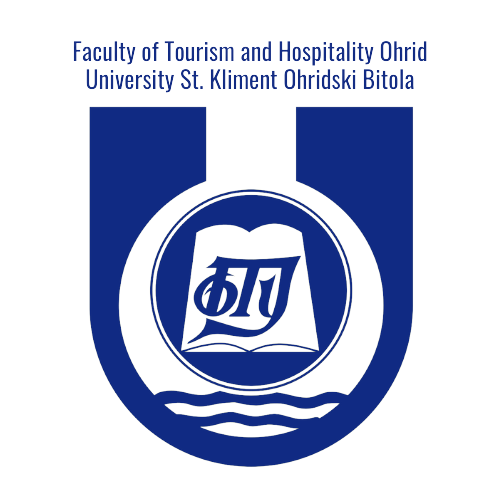
The Faculty of Tourism and Hospitality Ohrid, University of St. Kliment Ohridski from Bitola (North Macedonia) is a higher education, teaching-scientific and research unit whose activity is of special social interest.
From its establishment until today, the faculty successfully goes through several phases of its development, defining its motherland by solving the theoretical and practical problems of catering and tourism. Today, the Faculty of Tourism and Hospitality has successfully taken on the role of a leading institution in North Macedonia, by promoting scientific, teaching and professional thought in the field of tourism and hospitality.
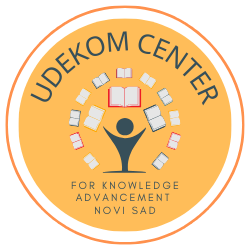
Udekom Center for Knowledge Advancement Novi Sad (Udekom Center) is dedicated to fostering the growth and dissemination of knowledge in the social sciences, particularly in economics and management. Our mission is to organize high-quality conferences and events that promote scientific research, education, and the preservation of knowledge. We are committed to advancing innovation, supporting creative education, and preserving regional identity while integrating regional developments into global scientific and economic trends.
ERAZ Conference is Organized by

Association of Economists and Managers of the Balkans (Udekom Balkans) headquartered in Belgrade – Serbia is a non-governmental and non-profit association, founded in 2014 to support the development of scientific thought in the region, development of management and economics profession, as well as education of its members and the general public.
The objectives of the UdEkoM Balkans are:
1. The development of science and education in order to promote the economic development of the Balkans, the increase of the GDP and raising of living standards;
2. Preservation and development of the general fund of knowledge and overall scientific and professional personnel in the social sciences, especially in economics and management…
Key Topics
- Microeconomics and macroeconomics
- Economic policy
- International economics and trade
- International business
- Economic diplomacy
- Lobbying
- Globalization
- European business
- Modern management and innovation
- Business and public finance
- Fiscal policy
- Stock exchange and financial markets
- Risk management
- Insurance and reinsurance companies
- Financial management and banking
- Modern forms of entrepreneurship and investment
- Investment management
- Enterprise and learning
- Women and entrepreneurship
- Corporate entrepreneurship
- Agribusiness strategy
- Sustainable agriculture
- Sustainable development goals
- Marketing and trade
- Marketing services
- Marketing of non-profit sector
- Research in marketing
- Marketing in education
- Marketing in sport
- Marketing in culture
- Accounting and auditing
- Quality management
- Labor law
- Business law
- The role of the rule of law in the country’s progress
- Human rights and protection of minorities
- Legal aspects of EU integration
- Intellectual Property Law
- The reform of corporate law in countries in transition
- CEFTA
- Ecology and energy
- Renewable energy
- Energetic efficiency
- Information technology and business intelligence
- The use and integration of new technologies
- E-society and E-learning
- Education
- Sustainable tourism
- Hospitality and others…
Important information
Selected papers will be published in the publication titled: ERAZ Selected Papers with an ISSN and ISBN number. This publication will be submitted for indexation at the Clarivate Web of Science (WoS) Conference Proceedings Citation Index and Scopus.
ERAZ Conference Proceedings will also have ISSN and ISBN number.
All full papers published in the ERAZ publications will have DOI numbers and will be indexed in Google Scholar, CEEOL (Central and Eastern European Online Library), ProQuest´s Serial Solutions, Summon, Primo Central, Alma, EBSCO´s EDS Discovery Service and Knowledge Base, TDNet, OCLC and more. This will increase the citedness of the authors.
Selected papers will be published in highly esteemed partner journals published in different countries by different faculties/universities and indexed/referenced in many databases (in this case only the abstract is published in the ERAZ Book of Abstracts and the full paper is published in a partner journal).
Other, non-selected full papers, but accepted for the conference, will be published in the ERAZ Conference Proceedings.
Full paper and abstract publication does not require in-person or online/virtual presentation.
Certificate of presentation/attendance will be sent by e-mail to all registered authors after the conference.
Except for conference registration fee, there are no additional or hidden publication costs.
The official language of the ERAZ conference is English.
All received papers prior peer review process will be subject to plagiarism check with iThenticate by CrossRef.
Presentation mode for the 12th ERAZ Scientific Conference
The conference will be held in a hybrid form (in-person, online, and virtually via an online meeting platform). There are three options for presentation.
1. On-spot presentation in Florence (Italy) – each presenter will have 7 minutes for presentation and 3 minutes for Q/A;
2. Virtual presentation: Participants who would like to join us via virtual presentation should email us their “voice-over video” presentation narrated in English in a duration of max 7 minutes;
3. Online (live presentation): Participants who would like to join us via online (live) presentation will be able to present their papers live. Each presenter will have 7 minutes for the presentation and 3 minutes for Q&A.
Details about these options will be provided to participants after abstract submission.
What participants say about ERAZ Conference
Our small research team had the incredible opportunity to participate in the ERAZ 2023 Conference, an extraordinary event that brought together brilliant minds from diverse research niches. The conference was truly captivating, offering a rich blend of thought-provoking and inspiring topics.
Throughout the event, we had the privilege of delving into a wide range of research areas, exploring the latest advancements and uncovering novel perspectives. From artificial intelligence to renewable energy, the ERAZ 2023 Conference embraced a multidisciplinary approach, fostering invaluable cross-pollination of ideas. It was fascinating to witness the convergence of various fields and witness the synergies that unfolded. 🚀
One of the highlights of our experience was the opportunity to present our own paper, From Content Creators to Business Innovators – Entrepreneurial Opportunities in Youtube Influencer Ecosystem. It was an honor to share our findings and contribute to the collective knowledge of the conference attendees. 📝
We extend our heartfelt gratitude to the organizers for curating such an exceptional event. Their meticulous planning and dedication created an environment where ideas flourished and inspiration ignited. 🙌
Attending the ERAZ 2023 Conference was an enriching journey that broadened our horizons, ignited our passion for research, and reinforced the importance of continuous learning. We return to our work with renewed vigor, armed with fresh perspectives and invaluable insights. 🌱
If you missed the ERAZ 2023 Conference this year, we highly recommend marking your calendars for the next edition. It is an opportunity you won’t want to miss.
I would like to thank ERAZ Conference Organizing Board for organising this awesome conference, and also thank to in-person presenting authors and all online presenting authors in the section. It was a great pleasure and honor to participate and to get to know these awesome researches.
It was indeed an extraordinary event that brought together brilliant minds from diverse research niches. We are grateful to the organizers, especially Nikolina Vrcelj, for curating such an exceptional conference.






































































































































































































































































































































































































































































































































































































































































































